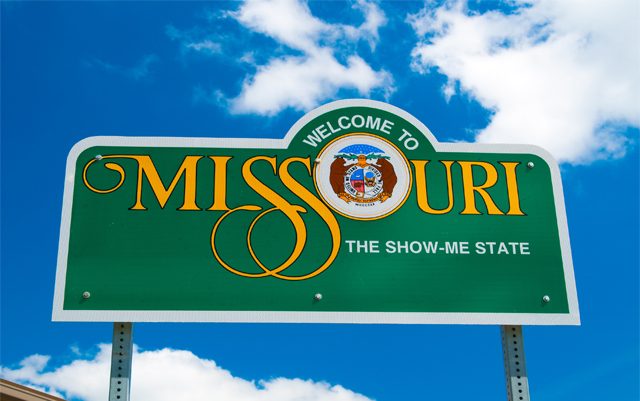Activists in Missouri have been working hard to get medical marijuana on the ballot in 2018 – especially after efforts fell apart at the last minute before the 2016 election. This year voters may have three different chances to vote ‘yes’ to legalize medical marijuana – two of which are possible constitutional amendments, and one which would amend state law. All three groups have now submitted their signatures to the Secretary of State’s office for validation. New Approach Missouri, the group who came so close in 2016, only to come up short on valid signatures, has turned in 372,483 signatures – more than double the 160,000 needed to qualify.
The amendment proposed by New Approach Missouri would permit state-licensed physicians to recommend medical marijuana to patients diagnosed with cancer, epilepsy, multiple sclerosis, Alzheimer’s, spinal cord injuries, post-traumatic stress disorder, and other equally serious or debilitating medical conditions. It also has a specific focus on veterans, with PTSD as a qualifying condition and a 4 percent sales tax that would be used to create a fund to help cover veteran’s healthcare costs.
The initiative proposed by Find the Cure would cover the same conditions, but it would charge a 15 percent sales tax that would be used to create an independent research institute to regulate the cannabis being grown and sold in the state, and to research “currently incurable diseases”. However, it also proposes that if that research center found or developed any cures or treatments and the breakthrough generated revenue, then some of that revenue would be used to reimburse Missouri citizens for what they paid in income taxes.
The third initiative is not a constitutional amendment, but rather a change to state law that would make medical marijuana legal. The signature threshold for this type of change is lower, making it easier for the group to make it to the ballot. This initiative would create a 2 percent tax that would go toward veterans, public safety, drug treatment and early childhood education and care programs.
Considering all three groups managed to get their signatures turned in on time, there is a chance that all three will be on the ballot this fall. If that is the case, and all three were to pass, then the constitutional amendment with the higher number of votes would be the initiative that becomes law. Voters will need to consider carefully the differences between the initiatives and decide which one they would prefer to see become an official law.






